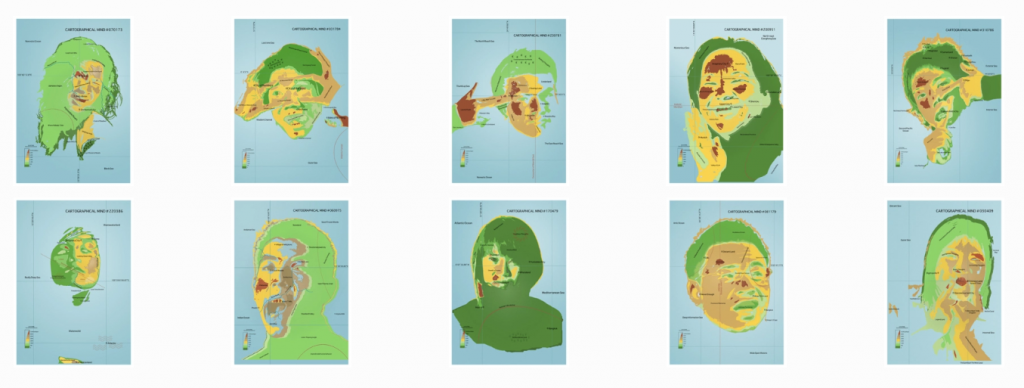“Cartographical Minds” by Klaus Fruchtnis at the Contemporary Art Museum of Bogota

PCA Photography Chair Klaus Fruchtnis work, “Cartographical Minds” is featured in exhibition “Political Bodies”
This curatorship shows the types of violence that have plagued Colombia for over five decades ; subversive, governmental, military, drug trafficking, intrafamily violence and how the body becomes a living testimony of abuse, but also of resistance and struggle to overcome abuse, re-emerging to be a testimony of non-repetition.
Curators Gustavo Ortiz and Juan David Quintero selected works by a variety of artists whose central axis is the human body in relation to itself, society, institutions, economy and their interactions – some of the most significant from the permanent collection. This exploration of the different types of violence raging against innocent bodies, the appropriation of the violated body and other representations that invite the viewer to know spaces, people and situations of aggression that can be more everyday than they seem, lead us to reflect on the existence of boundaries between body and territory.
“All violence that is exerted on the territory is exercised directly on the body”
Works by Niels Van Iperen, Beatriz González, Miguel Moyano, Umberto Gianagrandi, Dario Ortiz, show the Colombian conflict in the last 50 years from the perspective of how the body suffered the aftermath of this struggle for the earth, which although it refers to ‘geographical space’, directly violated the emotional, social and physical links of its inhabitants.
Director of the museum Gustavo Ortiz explains: “All violence that is exerted on the territory is exercised directly on the body ; in many of the mythologies and the cosmogonies of our ancestors the territory is conceived as the origin, the mother earth that feeds us, gives us life and welcomes us from birth to death.”
“Klaus Fruchtnis in his “Cartographical Minds” series, has pushed this question to the extreme.
What is scientifically termed “physiognomy”, the individual characteristics of a face, can, in fact, be seen as some sort of human topography. Each face is unique, such as the topography of a certain landscape. Fruchtnis has taken the portrait, the most common fashion of visually confining the face to a pictorial surface, and literally transformed it into a topographical map. However, he does not merely turn the photographs into maps but creates complex landscapes of body and mind.
The contours of the faces, their physiognomy, forms the basis of these “body- and mindscapes”, with for instance the hair being turned into wide plains, the nose into a mountain range or the cheeks becoming a valley. The physiognomy thus becomes topography, the “bodyscape” so to speak. Furthermore, the artist seeks to understand his model and infuses an array of private information into the existing bodyscape, which he slightly alters to emphasize certain bits of information. A “mindscape” is thus added to the existing topography, depicting both the inside and the outside of the person. One can say, the artist makes the mind visible through a sophisticated combination of physiognomy and psychology.
Fruchtnis thus achieves a complicated fusion of two separate, but intrinsically interlinked spheres of human existence. The mind and body form a unit, and the physiognomy of a person is a map of his personality. The “Cartographical Minds” series treats this connection in a visually stimulating and artistically inspired way, and within this, it strives for not much less than revealing the true essence of being human.” Frank Feltens
